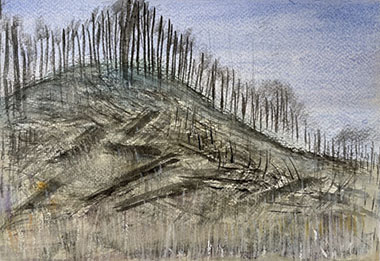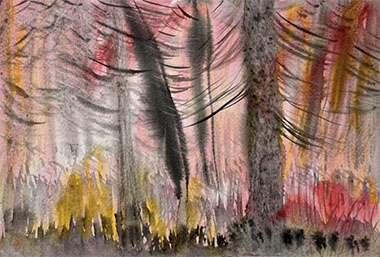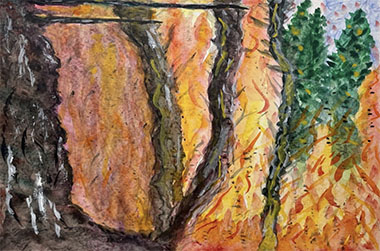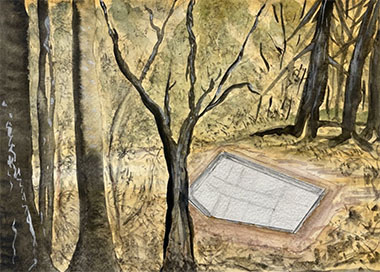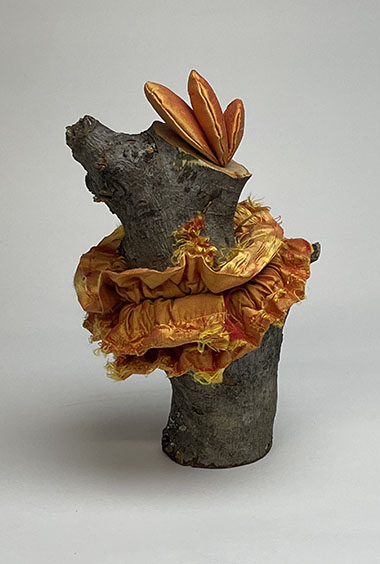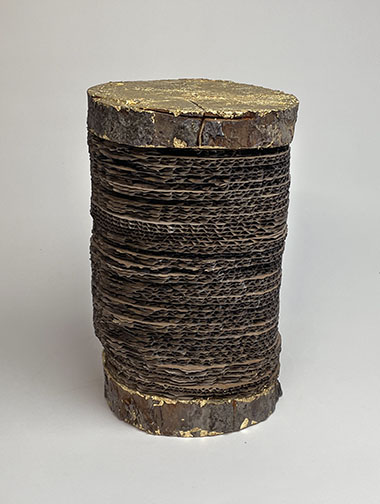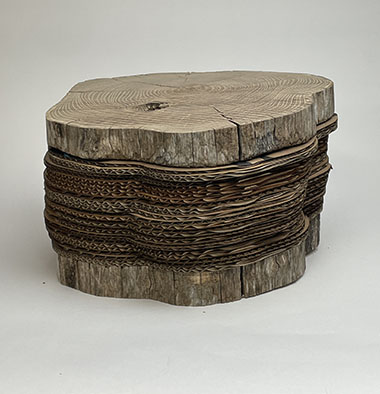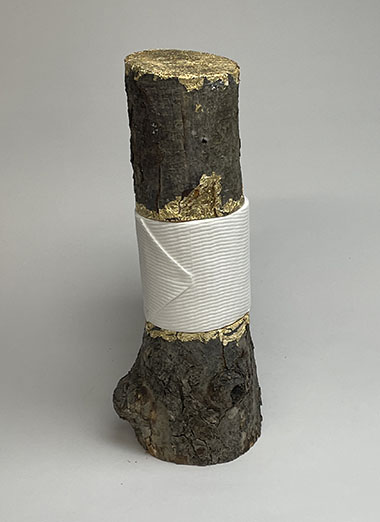The McKenzie River
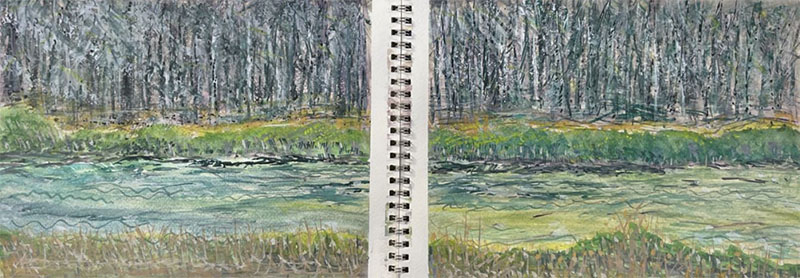
River
The McKenzie River's half in shade, half molten silver
and today, in the shallow water,
a single salmon, has made it back to where
she began, her scintillant body that moves like a river
within the river, undulant, greenish and roseate.
Then she flips on her side and tail-whips the gravel.
The tumble and clack of rocks, the pearly
smoke of silt blossoming. Then quiet, only the murmur of the river,
as she floats, her serious jaw opening and closing,
fins swaying. And again, she strikes
the stones with the flat of her tail. Again, the clatter,
the cloud. Her tail's scraped white from this quarrying,
building up a ridge, her redd.
The buck swims near, waiting to flood
the eggs with his milt, his beak sharp.
They've both stopped eating. Soon their flesh will shred,
rip off in strips, all the ornate
scales in their formal design. They will rot
and feed the river, the flies, the slugs, the crows and trees.
A yellow leaf drifts by, a few strands
of algae wave in the flow. The hen probes
the depth of her nest. The buck swims from side to side over
her back. Over and over. They hover. They vibrate.
They press their rippling bodies together.
Then suddenly, they gape, mouths open in what looks like the rapture
of human sex. The primal, pulsing shock as she gushes, a rush
of eggs, and in the same instant he storms
the nest with his sperm. So for a moment I can't see through the fog.
And when the water clears, there are the eggs, the crimson roe,
settling into the cracks of the rocks, a deluge.
An Artist's Residency in an Old Growth Forest
I am a visual artist. In preparation for my residency at the Spring Creek Project in central Oregon, I purchased extra-large tubes of yellow and blue watercolor pigments anticipating creating several notebooks full of "green" in the shape of forests. My large checked bag was filled with all my supplies and weighed exactly forty-nine pounds.
Driving from Eugene to Finn Rock in the late afternoon, I was surprised to see just a few triangles of evergreen trees here and there, surrounded by leafless trees for miles and miles. I thought to myself, "Oh, it's early winter here and the trees have lost their leaves already, like Vermont in winter." It was not until a few days later that I learned about the Holiday Farm Fire that swept through here in 2020. All these grey trees were dead, only they didn't know it yet. They would be downed within the next five years from a powerful rain or wind event. I was profoundly moved by what now appeared to me to be a wasteland. We are no longer in climate change, this is climate crisis. Adding to this was the silence. No birds singing. No longer silent spring, we have entered the silent summer, fall and winter. I never saw a deer, or any other animal other than a small chipmunk and one lonely hawk.
On our first tour of the nearby Andrews Experimental Forest, what a relief it was to be in a sea of green. The forest is a Museum of Time, a living museum that shows us what has happened here for over five hundred years. The surrounding treeless mountains have to start again. Will five generations from now experience this luxurious, lush life? What a precious resource these ancients are for humanity's future. The woods have so much to teach us and we are only now beginning to listen. They hold our history in their rings.
The Oregon Department of Fish and Wildlife organized a tour for us to see the special, artificially created Chinook spawning ground on the upper McKenzie River. We watched from the banks as a few females shimmied the gravel to make their redds. Chinook salmon travel up from the salty ocean, fasting in the fresh water as they plow their way one hundred miles upriver, a journey that began when they left this river to swim the circumference of the Pacific Ocean and return five years later to their birthplace. This arduous upstream swim, through several dams, begins in February and winds up in Finn Rock around September 17. On September 17-20, a few people came to the banks of the McKenzie opposite the Lopez house to watch for the return of the Chinook. Someone mentioned that thirty years ago you could walk across the river on the backs of the Chinook. We saw one female.
I went to see Cougar Hot Springs and the nearby reservoir created by the South Fork of the McKenzie River. The water in the reservoir was down to less than half of the dark, high water line of the past. Drought is visiting here, too.
So, you see, my creative time at the Spring Creek Project and the Andrews Experimental Forest turned out to be something of a lamentation for what was no longer here. Yes, I try to take heart that the underbrush is back and the Fire Lily has bloomed, but what was lost will not be found for a long time. I have lots of leftover yellow and blue paint and no red and orange. Only one of my watercolor books was filled.
As a Northeasterner, I am grateful for this opportunity to experience what is now the new normal here in Oregon and California: wearing masks outside in Portland, not because of Covid, but because the smoke is choking and dangerous. It all looks so small and far away when I watch it on the evening news back home. Now, I understand it is coming our way too, and sooner than we had anticipated.
Our house is on fire. What shall we do?

Beverly Sky is a professional fiber artist specializing in handmade paper and fabric collage. Using fiber as a medium, her work reflects her research in sustainable practices, particularly in tree farms that are cultivated for use in mundane products such as cardboard, newsprint and toilet paper. These monoculture woods are responsible for destroying huge tracts of diverse woodland habitats and contributing to the drought and massive wildfires in the western United States and Canada.
Ellen Bass's poem River, first published in Orion, was written during and after her residency sponsored by the Andrews Experimental Forest, the McKenzie River Trust, and held at the Lopez house. She had the privilege of writing at Barry Lopez's desk, looking out at the river that he looked out at for so many years as he wrote his extraordinary books.
